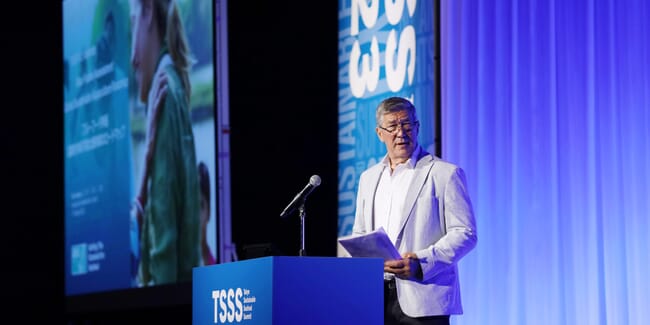
© ASC
Writing on behalf of ASC, Ninnes raised concerns relating to plans proposed by the Norwegian Ministry of Finance to raise the preliminary standard prices for farmed salmon. According to a report, the price increases are largely based on salmon quality and weight, although ASC certified salmon is proposed to be priced with an additional surcharge of NOK 2 per kg.
According to Ninnes, ASC was not made made aware of the proposal nor contacted for participation in consultation processes, despite being impacted by the price increases, should they go ahead.
"We have not been informed officially that ASC certified salmon is part of the proposal with an additional cost proposed, nor have we been identified and included as a key stakeholder in the consultation process. ASC has therefore been unable to comment and raise our concerns through the consultation process, (which seems to only include producers) and which closed on 17 January 2025. ASC was also not invited to consultation meetings which we understand were arranged for 28 and 29 January 2025," Ninnes stated, in an open letter to the Norwegian Government.
Consequences of the proposal
In his open letter, Ninnes states his belief that the proposed tax on ASC farmed salmon would have a profoundly negative impact on both Norwegian salmon producers and the global operations of ASC.
"Farms who work hard to improve their practice and invest in their business to meet our robust standards can use the ASC label on their products which ensures consumers know the fish they buy has been farmed responsibly," he says. "By putting an additional tax on ASC certified fish, the proposal sends the wrong message to the market and is effectively attacking and punishing farms who choose to operate responsibly and to the highest standards. We believe this is illogical and contrary to policies supported by European and international organisations, and indeed the Norwegian Government, to drive improvement in responsible practice across the farmed seafood industry."
If accepted, Ninnes believes that the tax will discourage Norwegian salmon farmers from pursuing ASC certification, despite the positive social license and community and worker welfare gains associated with the label. Due to increased public perception of the issues of the industry, such as poor animal welfare associated with sea lice and jellyfish blooms, Ninnes states that ASC's social license is needed by Norwegian producers now more than ever.
The proposal may also impact investment in the industry, Ninnes claims.
"Investment is required to support technological advances and ASC certification is often a requirement attached to loans for aquaculture producers – indeed DNB, Norway’s largest bank, part-owned by the government operates this policy, for example. By making ASC certification more costly for farmers, this proposal will also make it harder for them to access green financing to support
improvement," he explains.
Considering the lack of consultation thus far, Ninnes requests a meeting with the Norm Pricing Council and the coordinator of the project proposal to formally discuss ASC's concerns.
"Overall, we believe that this proposed taxation will create a financial burden to fish farmers and will likely result in a lower uptake of ASC certification. By imposing additional costs on ASC certified farms, the proposal discourages responsible aquaculture, contradicting international efforts to improve sustainability. Looking at the bigger picture, it hinders the transformation of seafood farming not just in Norway, but in all its immediate markets globally," he concludes.




